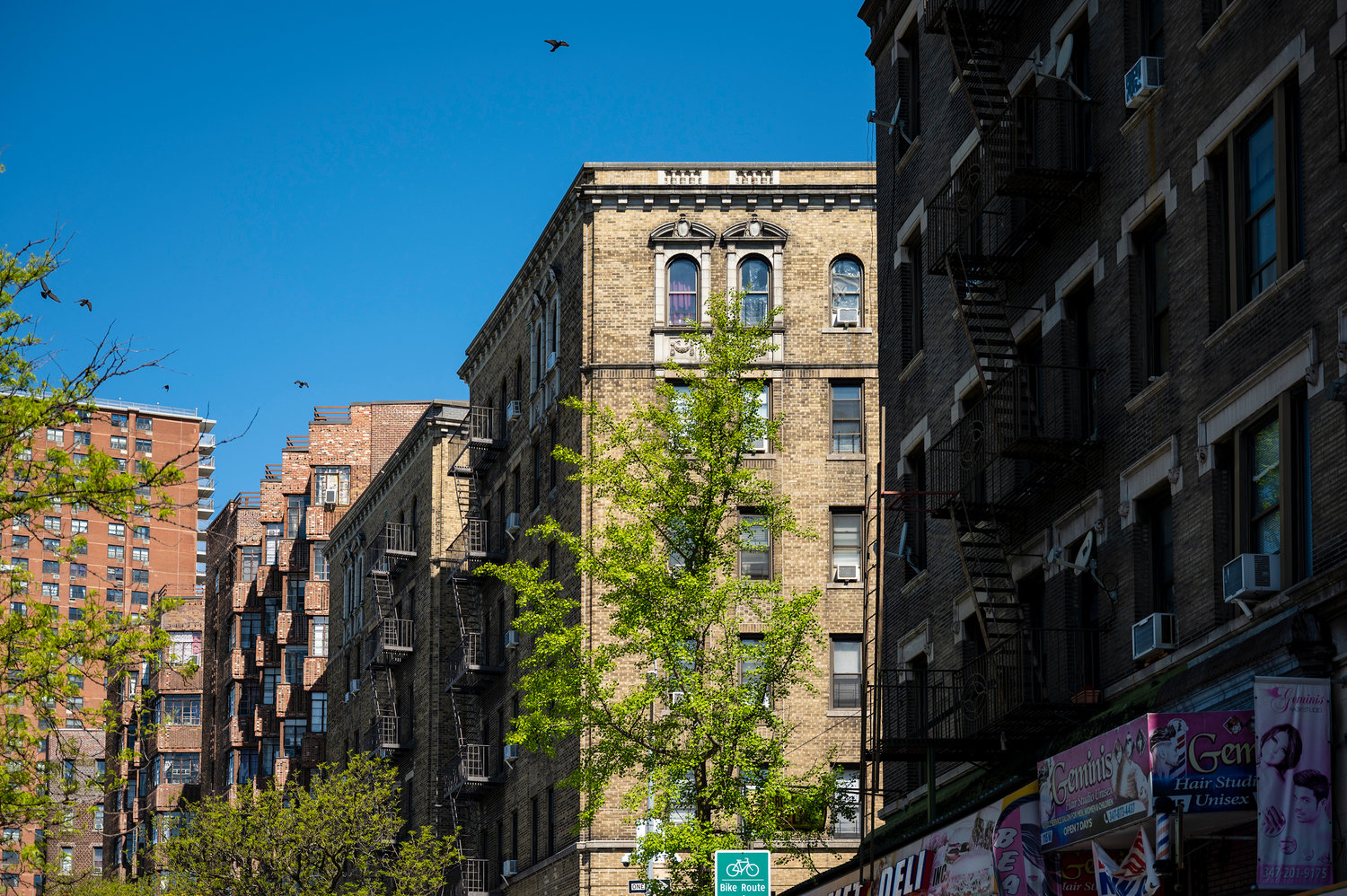Pols worry rent increase will fuel eviction crisis
With filings increasing, critics say decision to raise rents is bad timing
Renters across the city have been dealing with uncertainty since the height of the pandemic.
For many, making rent has been especially difficult.
But now some of the most vulnerable renters in the city may be dealing with the grueling reality that things are about to get worse.
That’s because New York City’s Rent Guidelines Board voted to increase the rent for the 1 million of the city’s stabilized apartment tenants last week. The increase — the highest in 10 years — will now see residents of those units pay 2 to 4 percent for one-year leases and 4 to 6 percent more on two-year leases.
In New York City, under a 1969 law, tent stabilized tenants are protected from sharp increases in rent and have the right to renew their leases.
It’s the decision to raise rents that critics such as Councilman Eric Dinowitz and Councilwoman Pierina Sanchez oppose.
“The New York City’s Rent Guidelines Board proposal of a 6 percent increase on two-year leases is too high,” Dinowitz said. “It is not at all the right time to raise rents on stabilized tenants. Not only because this hike will affect low and middle-income communities, but also because it will add to the current eviction crisis.”
Since the rent moratorium ended in January, the housing court has been particularly busy dealing with the wave of evictions filed. Dinowitz would like to see that matter dealt with first before tenants have to face the reality of higher rents.
“To avoid a bigger crisis in the housing system, courts need to slow down on eviction proceedings,” Dinowitz said. “In the City Council’s response to the Mayor’s preliminary budget, we are trying to increase funding for the right to counsel and we are looking to increase city FHEPS (Family Homelessness & Eviction Prevention Supplement) vouchers to help families secure permanent housing.
“My office is also directly contacting residents in our district who are eligible for SCRIE (Senior Citizen Rent Increase Exemption) or DRIE (Disability Rent Increase Exemption ) and have not renewed their applications yet. We know these programs are key for allowing vulnerable New Yorkers to freeze their rent and avoid losing their housing.”
FHEPS is a rent supplement for families with children if they receive cash assistance and have been evicted or are facing eviction. They may also qualify if they lost their housing due to a domestic violence situation or health or safety issues, according to the city’s rental assistance website.
Dinowitz also pointed out the poor timing of the board’s decision.
“Inflation is impacting everyone, including tenants who need to spend more on food, gas, and clothing, in a city with a high unemployment rate,” the councilman said.
It’s a sentiment councilwoman Sanchez shares with her colleague of the 11th district.
“With renters owing approximately $1.6 billion in back rent and over 32,000 evictions filed to date in 2022 across the city, the impact of the COVID-19 pandemic on NYC rent stabilized renters cannot be overstated and also cannot be fully understood without a full analysis of this year’s Housing Vacancy Survey,” Sanchez said. “Landlord burdens are not more important than renters’ plights, and consideration for inflation must be done across the board.
“Prices have increased for renters and owners alike. The Rent Guidelines Board cannot in good faith move forward without recognizing the full extent of the impact the coronavirus pandemic has had and continues to have on rent-stabilized households.”
For Sanchez, the stakes are even hire for her constituents – making the rent board’s decision even more distressing.
“What we are calling for, what our families need is a rent freeze,” Sanchez said. “I represent the epicenter of the post-COVID eviction crisis. We should stabilize renters, not increase already unaffordable rents for families.”
Sanchez stressed that rent stabilized tenants, who are more likely to be low income and receive public assistance, face astronomically high rent burdens.
“Rent stabilized apartments have provided a critical source of affordable housing and stability in the City of New York for decades,” the councilwoman said. “This is why the very first bill to pass in the City Council (this year) prioritized the integrity of rent stabilization, extending the deadline for the administration to finalize the findings of the Housing Vacancy Survey – a critical and required tool in determining the continuation of stabilization for NYC’s nearly one million rent stabilized households.”
But the council isn’t just stopping at protecting the integrity of the rent stabilization program, according to Sanchez, “the Council is fighting to maximize resources for the preservation and construction of affordable and supportive housing,” she said. “Specifically, we are pushing for the mayor to follow through on his campaign commitments of $4 billion per year to address this housing crisis.
“As chair of the Housing and Buildings Committee, I will also (study) the mayor’s forthcoming housing plan to ensure it plans for the provision of truly deeply affordable housing.”
While Mayor Eric Adams has yet to make good on his promise to spend $4 billion on the housing crises, hizzoner has appointed three members to fill vacant seats on the rent guidelines board.
The board is made up of a wide diverse group of individuals representing both sides of the argument. Those members include a landlord lawyer, an advocate who opposes rent control and a housing attorney with the Legal Aid Society.
Sanchez fears the decision to raise rent stabilized units will add to the housing, eviction and homeless crises that will take the city years to recover from.
“Representing the epicenter of the post-COVID eviction crisis, I am concerned this will fuel the crisis even further, further destabilizing already struggling communities and ultimately, costing the city more,” Sanchez said.






